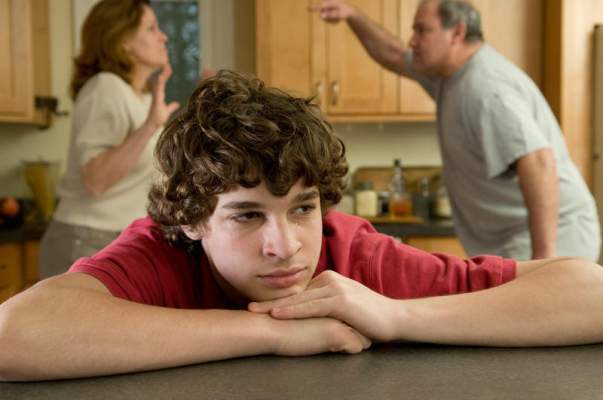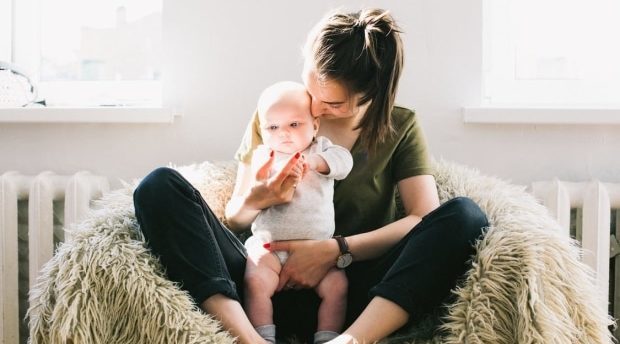Your Divorce And Five Ideas Your Children Might Have
Divorce is one of the hardest situations for a family to experience. Studies have even shown it can even be harder than a death in the family. Here are some common thoughts children may have about divorce – even kids who are no longer living at home.
“I Have to be the Man/Woman of the House Now.”
Children of divorce will have to step up and take on more responsibility around the house as the family adapts to their “new normal.” However, they should not be given more responsibility than they can handle.
Sometimes adults outside the situation will talk to the oldest child and say, “You are the man/woman of the house now. Take care of your mom/dad.” No matter their age, children are not responsible for mothering or fathering their parents.
Be sure your children know they need to be a brother, son, sister, or daughter but they do not need to be the parent.
“I Can’t Talk about the Divorce with my Parents because it will Upset Them.”
Divorce is emotional. Bottling up feelings will cause problems in the future.
Make sure your kids know it’s OK for them to cry, it’s OK for them to be angry, and it’s more than OK (even encouraged) for them to talk about their feelings with their parents even if it makes their parents cry.
Kids will want to know why their parents are getting divorced. They will look inward if they don’t see any other answers.
Make it clear the divorce resulted from problems with you and your ex, but be sure not to go into specific details.
Treating a child as a confidant puts too large an emotional burden on him or her and adds more strain to an already difficult time. Also avoid laying all the blame on your spouse.
If your child would be more comfortable talking to someone outside the situation, find a counselor, a teacher, a trusted adult, a church leader, or someone else who is aware of the situation and who can listen to your child.
“I will end up Divorced just like my Parents.”
We often hear children of divorce are more likely to find themselves divorced in the future. One article refers to this as the divorce cycle. This phenomenon exists in part to the poor relationship or emotional habits divorced parents pass on to their kids.
One reason the divorce cycle exists is because many children of divorce get married as teenagers.
As the article mentioned above points out, the younger you are when you get married, the more likely you are to get divorced.
Divorce is devastating, but how children react to it will determine whether or not they continue the cycle. Children who learn from their parent’s divorce will be more self-aware and pay more attention to their relationships so they can do everything in their power to avoid their own divorce.
“I Love both Mom and Dad.”
Children will usually have to make little choices about which parent to spend time with. They may worry if they choose to spend time with Dad, Mom will think they don’t love her. Tell your children they don’t have to take sides – it’s OK for them to want to spend time with both parents.
Do not talk badly about your ex to your children – even if the parent is no longer in the picture. Not only will it create bad blood, but it will also make your children feel like they are being disloyal to their other parent by listening to you. Read the Bill of Rights for Children in Divorce. It will help you keep your children out of the middle.
Anxiety over having to choose can get even stronger if custody battles head to court. As Donnell Law Group points out, family issues are very emotional. It’s good to have a lawyer who can understand the complexity of the family court situation while giving honest, objective advice on how to handle legal proceedings.
“Are my Parents Going to Get Back Together?”
As you find ways to be around your ex and still be civil, your children might see their parents getting along and wonder if that means they will get back together. Or children might even try to find ways to get their parents to reconcile. Explain the marriage is over and even if you and your spouse are still friends, you will not be getting back together.
If you do choose to try and reconcile with your ex, don’t tell your children about it until you are sure you will be getting remarried. You do not want to get your children’s hopes up just to dash them and put them through everything again.
One of the best practices you can develop during and after a divorce is communication.
Make sure you have open communication with your children so they have a safe environment to express their feelings. Keep in mind even when you are doing all the right things, there is no such thing as an “easy divorce.” Time will work wonders—hang in there.
The author Hannah Whittenly is a freelance writer and full-time mother from Sacramento, CA. Her two boys keep her very busy, but they are her inspiration for much of her writing. Her favorite subjects to write about are family and business. Hannah is a frequent contributor to S4S. Check out some of her previous articles you won’t be disappointed:







This is excellent information. As founder of the Child-Centered Divorce Network for parents I endorse the advice here and encourage parents to seek out professional resources for guidance and support.
Thank you Rosalind for the endorsement. Your contributions are welcomed.
Gerardo